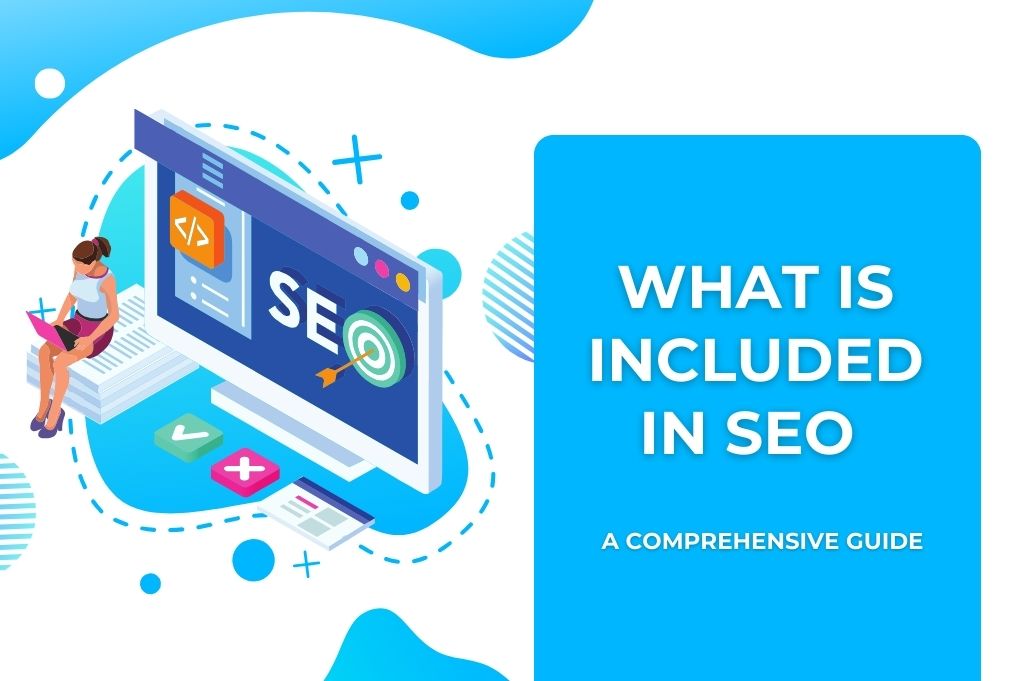Search engine optimization or SEO includes various techniques and practices aimed at improving website visibility and ranking on search engines like google, Bing. The goal of SEO is to make your website more attractive to search engines and to increase its organic traffic and online presence.
Why Should You Get SEO Services?
By using SEO services individuals and businesses can get many benefits to establish online presence and improve their visibility on search engines like google. Here are some reasons that why should we use SEO such as SEO services optimize your website content to rank higher in search engines this leads to increase organic traffic, SEO can be more cost effective than paid advertising, driving targeted traffic, establishing credibility, and achieving long-term growth. SEO also optimizes your website for both search engines and users.
This often includes improving site navigation, page loading speed, mobile-friendliness, and overall user experience. Specific keywords and phrases related to business are also targeted by SEO. For effective SEO, we must have a good website Design, website is completely optimized and well researched.
Branches of SEO
These are specialized branches of SEO:
Local SEO
Local SEO has concerned to improve your website visibility in local search results. It’s specifically significant for those businesses who have physical locations or offer services to specific local audience. Local SEO involves Google My Business (GMB) optimization, local citations, localized website optimization and more.
Business SEO
Business SEO has been concerned to broaden optimization approach for your website visibility to various regions search engines. Business SEO covers local, national and international markets depending upon their business needs. Business SEO involves Keyword Research, On-page optimization, Technical SEO, Link building and more.
Areas of SEO
On-page SEO
Optimizing individual web pages to improve their relevance to specific keywords. This includes optimizing content, headings, meta tags, URLs, and internal linking.
Off-page SEO
Building backlinks and mentions from other websites to improve a site’s authority and reputation. This involves outreach, guest posting, and social media engagement.
Technical SEO
Technical SEO optimized website’s technical aspects for search engines. This includes factors like site speed, mobile-friendliness, crawlability, indexability, and structured data markup.
Ranking factors of SEO
Criteria that search engines use to determine the position of website pages are ranking factors. Both on-page and off-page elements contribute to the website quality, ranking and authority are included in ranking factors. More than 200 ranking factors are used by search engines, but we discussed some of the most important factors here.
High quality content
The quality of content has a great effect on websites. If you want your website to be ranked on search engines, content should be unique, updated and understandable for users. If content is not unique and duplicated, then search engines will not rank your web pages. Updated, fresh, valuable and unique will have positive impact on your website ranking and increase crawling. Content length also plays a role in your website; your content should completely cover the topic completely.
Backlinking
This is the most critical ranking factor. Quality and authoritative backlinks from other reputable websites indicate to search engines that your content is valuable and trustworthy.
Keyword optimization
Incorporating relevant keywords into website content, meta tags strategically to improve websites visibility in search engines are included in keyword optimization. Research keywords completely to identify exact terms that user search for. When you search for keywords for a website then include them in your content in a natural, user-friendly way and focus on providing valuable information and addressing your website intent. Avoid keyword stuffing and balancing keywords is a key factor to rank websites.
User Experience
User experience plays a vital role in website ranking and SEO (Search Engine Optimization). Search engines like Google aim to provide their users with the best possible search results, which means they want to direct users to websites that offer a positive and relevant experience. Bounce rate means percentage of visitors who leave viewing website after one page. High bounce rate leads to low ranking. Dwell time (amount of time spent by user on website) should be high.
Domain authority
Domain authority is a metric used in SEO to measure overall website’s credibility, trustworthiness and authority of website’s domain. It’s influenced by factors like backlinks, content quality, and engagement.
Search intent and content relevancy
Search intent, also known as user intent, refers to the relevancy of your content with user search queries. SEO focuses on delivering content relevant to user search queries to improve your website visibility on search engines that leads to higher ranking.
Mobile-friendliness
Your website should be mobile friendly if your website has a responsive design that works on different screen sizes, which is a crucial factor for ranking. Google uses the mobile version of a site for indexing and ranking.
Services of SEO
Services are the tasks, strategies and activities performed by SEO services experts to improve website visibility and performance in search engines.
There are many services that are included in SEO, but we discussed some of them here.
Content Analysis
Evaluating and optimizing the content on a website to make it more search engine-friendly and relevant to users is Content analysis in SEO. This includes analyzing the quality, relevance, and keyword usage within the content. The aim is to create high-quality, informative, and engaging content that meets users’ search intent and contain relevant keywords naturally.
Also Read: How does SEO helps in your Business
SEO Audit
An SEO audit is a comprehensive assessment of a website’s current SEO health and performance. It involves analyzing different on-page and off-page elements to identify strengths, weaknesses, and areas for improvement.
An SEO audit covers factors such as website structure, metadata, content quality, keyword optimization, site speed, mobile-friendliness, backlinks, and technical issues. The audit helps identify issues that might be affecting the website’s visibility on search engines.
On-Page Optimization
On-page optimization refers to the process of optimizing individual web pages to improve their visibility and ranking on search engines. This includes optimizing various on-page elements, such as meta titles, meta descriptions, headers (H1, H2, etc.), URL structure, keyword usage, internal linking, and image optimization. On-page optimization ensures that each page is coordinated with specific target keywords and provides a better user experience.
Off-Page Optimization
Off-page optimization involves activities outside of your website that contribute to improving its search engine rankings. The primary concern is on creating high-quality backlinks from authoritative and relevant websites. This can be achieved through techniques such as guest posting, influencer outreach, social media marketing and engagement, and content promotion. Off-page optimization helps establish the website’s credibility and authority in the eyes of search engines.
Website Support
Website support in the context of SEO involves maintaining and updating the website to ensure it remains technically sound and user-friendly. This includes regular monitoring for broken links, fixing technical issues that might affect SEO performance (e.g., page load speed, mobile responsiveness), ensuring proper indexing by search engines, and addressing any issues that arise. A well-maintained and technically optimized website is essential for effective SEO.
Competitor Analysis
Competitor analysis is the process of researching and evaluating the strategies and performance of competing websites in the same industry or niche. This analysis helps identify competitors’ strengths and weaknesses, their keywords and content strategies, their backlink profiles, and their overall SEO tactics. By understanding the competitive landscape, businesses can refine their own SEO strategies to gain a competitive edge and target areas where their competitors might be falling short.
Monthly Report
A monthly report is a summary of the key performance metrics and progress of an SEO campaign over a specific month. This report typically includes data on website traffic, keyword rankings, organic search visibility, backlink acquisition, on-page optimizations, and other relevant metrics. Monthly reports provide insights into the effectiveness of the SEO strategies being implemented and help stakeholders make informed decisions about ongoing optimizations and adjustments.
Conclusion
In conclusion, we conclude that firstly we should know the type or area of website for optimization to improve their visibility and ranking. Then, use SEO ranking factors that we discussed above to make it higher in all search engines.







